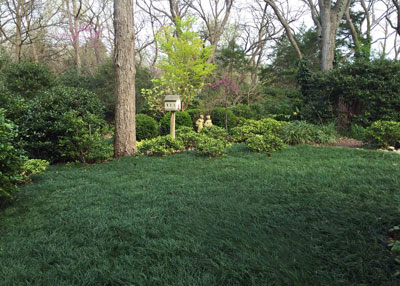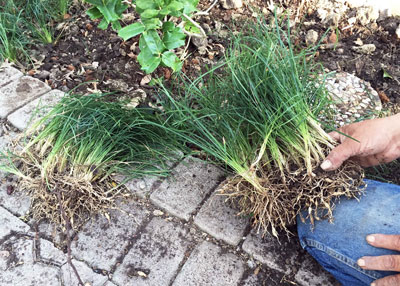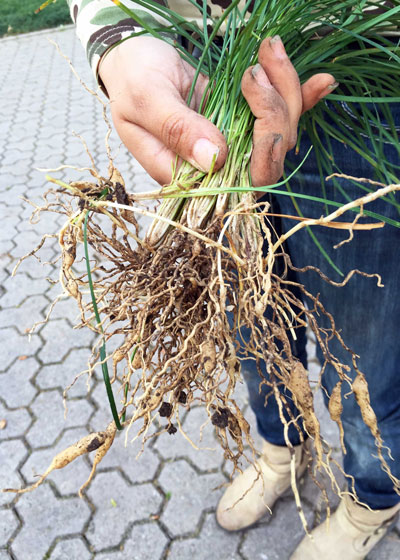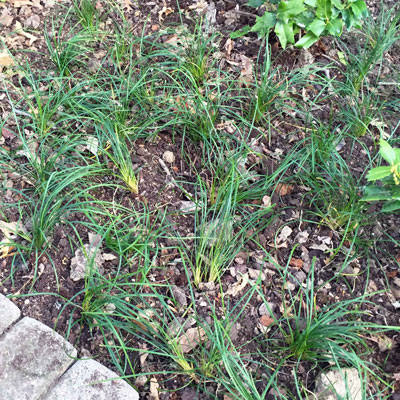Quick Tip from Neil: March 24, 2016

This mondograss was planted exactly as described below. It covered solidly within the first year. Photo from last night at 6 p.m. Click to see a larger photo.
We live in a pecan forest, which means that grass won’t grow in all of that shade. I’ve replaced turfgrass with groundcovers, and at the top of the list is mondograss (Ophiopogon japonicus). Initially I bought several hundred 4-inch pots to get it all started, but from those original plantings made 35 years ago, we’ve planted probably a quarter-acre. We made the latest planting yesterday morning. (I hired some help. Bad day for my knees.)

Mondograss is almost ready to plant.
Step 1. Prepare a planting bed by rototilling 1 or 2 inches of organic matter several inches into the soil. (Mondograss doesn’t require a lot of special bed preparation.)
Step 2. Find an established planting that has spread a bit farther than was wanted (your house or a friend’s).
Step 3. Take a sharpshooter spade and dig the mondograss out almost like sod.
Step 4. Break the large clump into smaller clumps between the palms of your hands.
Step 5. Compact them into tennis ball-sized clumps.

Individual plants will pull apart fairly easily, but compress them gently to make a tennis ball-sized clump for planting.
Step 6. Space the clumps 7 or 8 inches apart (closer if it’s a slope). The tips of each clump’s leaves should arch and intertwine with the clumps that surround it.
Step 7. Water it deeply by hand.

This portion of the bed is ready to be watered deeply.
Step 8. Fertilize it with a lawn food after two weeks and monthly the balance of the year. Keep the new planting watered well throughout the growing season. It should cover by the first freeze this fall. Its roots will hold the soil tightly.
